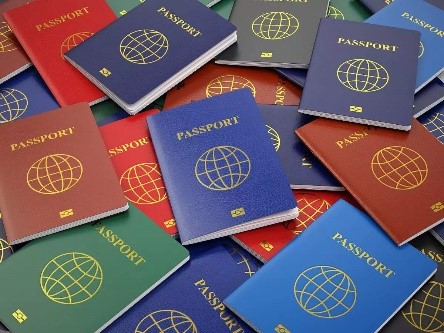





Disclaimer: Copyright infringement not intended.
Context
Top of Form
Findings
Henley Passport Index
Factors Influencing Rankings:
Significance of Passport Strength:
Geopolitical Implications:
Recent Trends and Developments:
Challenges and Criticisms:
Conclusion
|
PRACTICE QUESTION Question: Consider the following statements regarding the Henley Passport Index: 1.The Henley Passport Index ranks passports based on the number of countries and territories their holders can visit without the need for a visa or with visa-free/visa-on-arrival access. 2.Visa-on-arrival privileges contribute positively to a passport's global mobility score in the Henley Passport Index. 3.Passport strength, as reflected in the index, is primarily determined by a country's economic standing and military prowess. 4.The COVID-19 pandemic has had no impact on the Henley Passport Index, and rankings have remained constant throughout this period. Which of the statements above is/are correct? a) Only 1 and 2 b) Only 3 and 4 c) Only 1, 2, and 3 d) Only 2, 3, and 4 Answer: a) Only 1 and 2 Explanation:
PRACTICE QUESTION Question: Examine the role and significance of the Henley Passport Index in the context of global mobility and international relations. Provide a comprehensive analysis based on the following statements:
Critically evaluate these statements and discuss the broader implications of the Henley Passport Index on diplomatic engagements, economic collaborations, and global connectivity. Model Answer Introduction: The Henley Passport Index, a widely recognized measure of global mobility, plays a crucial role in assessing the strength of passports based on visa-free/visa-on-arrival access to countries and territories. This examination aims to critically evaluate key statements regarding the significance of the Henley Passport Index. Analysis of Statements:
Analysis: The first statement is accurate. The Henley Passport Index indeed ranks passports based on the number of countries and territories their holders can access without the need for a visa or with visa-free/visa-on-arrival arrangements.
Analysis: The second statement is valid. Passport strength in the Henley Passport Index is influenced by diplomatic relations and reciprocal visa arrangements between nations. Strong diplomatic ties often correlate with higher visa privileges.
Analysis: The third statement is correct. The COVID-19 pandemic has significantly influenced passport rankings. Changes in travel restrictions and visa policies during the pandemic underscore the intersection of health considerations and global mobility.
Analysis: The fourth statement is accurate. The Henley Passport Index indirectly acts as an indicator of a country's soft power. High passport rankings demonstrate a nation's ability to negotiate favorable travel arrangements, showcasing diplomatic influence. Broader Implications: The Henley Passport Index holds profound implications for international relations, global business, and connectivity:
Passport strength reflects a nation's diplomatic influence and trust with other countries. High-ranking passports often signify positive diplomatic relations and cooperation.
Robust passports facilitate international business by easing travel restrictions for professionals, investors, and entrepreneurs. This fosters economic collaborations and attracts foreign investment.
Passport rankings directly impact global connectivity and tourism. Countries with stronger passports are likely to experience increased tourism and cultural exchange. Conclusion: In conclusion, the Henley Passport Index is a pivotal tool that extends beyond a mere assessment of travel privileges. It mirrors diplomatic relations, reflects a nation's soft power, and highlights the intricate relationship between health, diplomacy, and global mobility. The index, therefore, stands as a key instrument in understanding the evolving dynamics of international relations and connectivity. |




© 2026 iasgyan. All right reserved